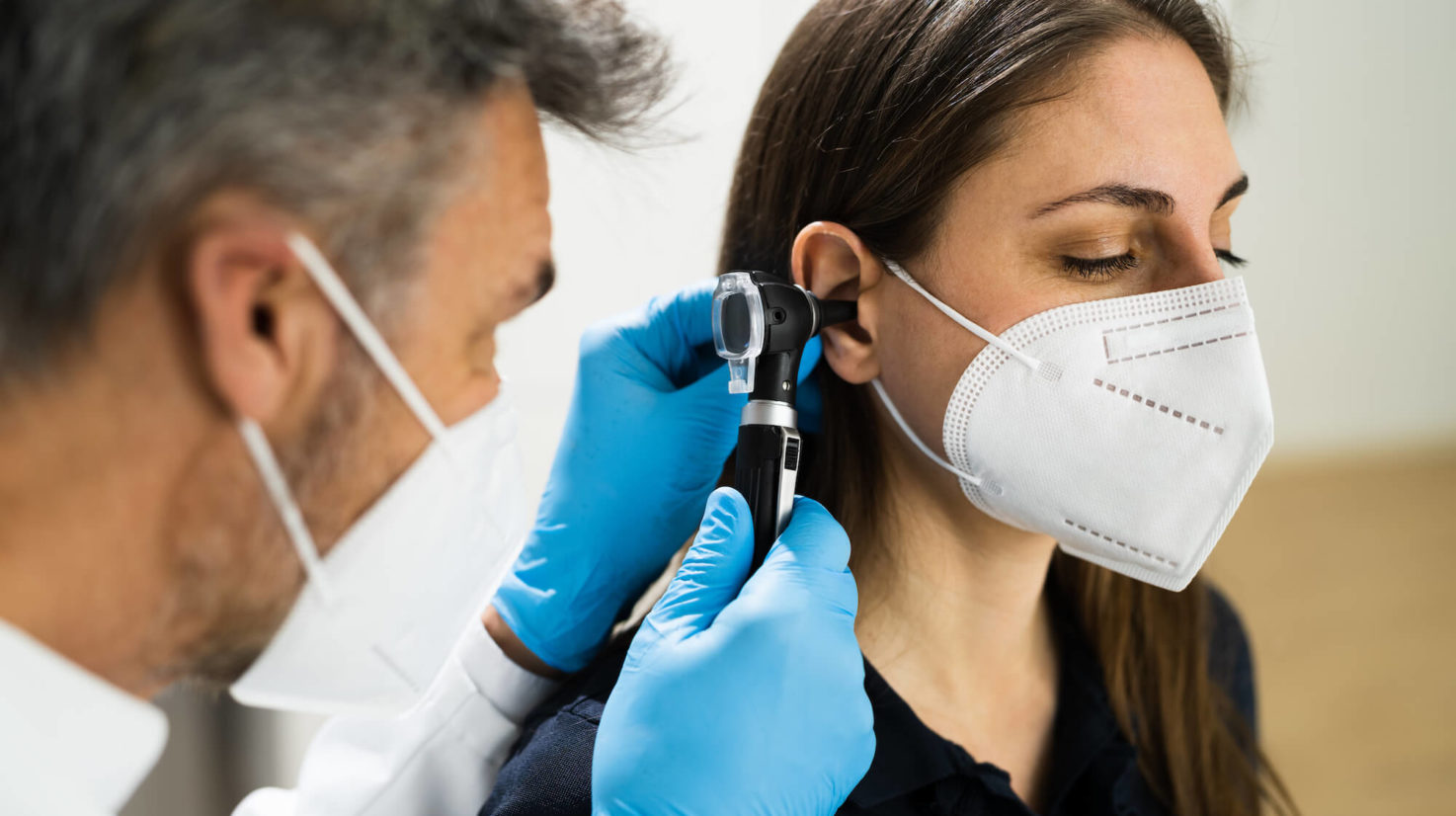Frustrated with Sinus Pain? Here's When to Call a Sinus ENT
Frustrated with Sinus Pain? Here's When to Call a Sinus ENT
Blog Article
Exploring the Area of Otolaryngology: What to Anticipate When You Consult an ENT
Otolaryngology, commonly referred to as ENT, incorporates the diagnosis and treatment of throat, nose, and ear disorders. For those experiencing related issues, seeking advice from an ENT specialist can give quality and alleviation. Understanding what to anticipate during such examinations is necessary for reliable interaction and care. This summary will lay out vital elements of the ENT experience, consisting of common factors for brows through and the processes included in medical diagnosis and therapy.

Comprehending Otolaryngology: An Overview
Otolaryngology, commonly referred to as ENT (Throat, nose, and ear) medicine, is a customized branch of medicine that concentrates on the diagnosis and treatment of conditions influencing these critical locations of the body. This field incorporates a vast array of problems, including those associated to hearing, balance, breathing feature, and speech. Otolaryngologists are trained to take care of both medical and medical treatments, utilizing innovative strategies and innovations. Their competence prolongs past conventional conditions, addressing issues such as allergic reactions, sinus infections, and hearing loss. In addition, they play a vital role in the management of head and neck cancers, giving comprehensive care tailored to specific person needs. In general, otolaryngology stays crucial for keeping wellness and lifestyle in afflicted people.
Common Reasons to See an ENT Specialist
Many people seek the knowledge of an ENT specialist for a selection of factors, showing the diverse nature of problems that influence the ear, nose, and throat. Usual problems include persistent sinus problems, which typically results in relentless nasal blockage and facial pain. Allergic reactions and their connected signs and symptoms, such as itching and sneezing, also trigger check outs to these specialists (ENT Doctor). Hearing loss, whether sudden or progressive, is an additional significant factor for assessment. Furthermore, people may seek evaluation for throat conditions, including persistent hoarseness or swallowing troubles. Sleep apnea, identified by disturbed breathing throughout rest, is frequently dealt with by ENT specialists also. Each of these conditions highlights the relevance of specialized treatment in taking care of complex ENT-related health problems
Preparing for Your ENT Visit
When planning for an ENT consultation, it is essential to collect pertinent information and think about any kind of particular concerns. Clients must assemble an in-depth clinical history, including previous ear, nose, or throat concerns, surgical procedures, and present medications. Recording signs and symptoms-- such as duration, frequency, and seriousness-- can offer useful understandings for the ENT professional. In addition, individuals ought to prepare a checklist of inquiries they want to ask, making certain that all problems are addressed throughout the visit. Bringing along any type of relevant medical documents or examination outcomes can additionally help the ENT in comprehending the client's condition. Patients must validate their visit information, consisting of area, date, and time, to reduce any type of final confusion. Proper preparation can improve the performance of the appointment and bring about far better results.
What to Anticipate During the Appointment
As the examination begins, the patient can expect to take part in a complete conversation with the ENT expert concerning their signs and case history. The specialist will certainly inquire concerning the period, frequency, and extent of signs such as hearing loss, nasal blockage, or sore throat. In addition, the client's previous clinical conditions, medicines, home and any appropriate family members history will be reviewed, assisting the specialist in forming a full understanding of the client's wellness. The ENT may likewise inquire about way of life elements, such as direct exposure to toxic irritants or allergens. This open dialogue establishes a structure for the consultation, guaranteeing that the patient's problems are dealt with and establishing the phase for any required assessments or referrals for treatment.
Analysis Tests and Procedures in Otolaryngology
A variety of diagnostic examinations and procedures are essential in otolaryngology to properly evaluate and identify conditions impacting the throat, ear, and nose. Common tests include audiometry, which determines hearing feature, and tympanometry, assessing middle ear stress. Nasal endoscopy enables visualization of the nasal passages and sinuses, while laryngoscopy examines the throat and vocal cords. Imaging techniques, such as CT scans and MRIs, provide comprehensive sights of head and neck frameworks. Allergic reaction screening might additionally be performed to identify triggers for sinus or respiratory system issues. These diagnostic tools enable ENT experts to create a thorough understanding of clients' conditions, making certain tailored and effective monitoring strategies. Appropriate medical diagnosis is important for successful treatment results in otolaryngology.
Treatment Choices Used by ENT Specialists
ENT specialists offer a selection of therapy choices tailored to attend to certain conditions affecting the throat, ear, and nose. These treatments vary from conventional approaches, such as drug and lifestyle adjustments, to even more invasive procedures. Allergic reactions might be taken care of with antihistamines or immunotherapy, while persistent sinusitis could call for nasal corticosteroids or sinus surgical treatment. For hearing loss, ENT experts typically recommend listening devices or medical treatments like cochlear implants. In instances of throat disorders, choices can consist of speech treatment or surgical treatments to eliminate obstructions. Furthermore, they might give advice for managing rest apnea, including making use of CPAP devices or medical interventions. Overall, the goal is to boost clients' quality of life with personalized care and efficient treatment methods.
When to Seek Follow-Up Treatment With an ENT
Identifying when to seek follow-up care with an ENT specialist is vital for handling continuous signs and symptoms or problems connected to throat, nose, and ear problems. Patients ought check my reference to consider scheduling a follow-up visit if symptoms continue in spite of first treatment, such as persistent ear pain, nasal congestion, or throat pain. Adjustments in hearing, equilibrium issues, or unusual nasal discharge may additionally necessitate more evaluation. Additionally, if a client experiences side results from prescribed medications or the best otolaryngologist near me has undertaken a surgery, follow-up care is very important to monitor recovery and address any problems. Prompt consultations can guarantee reliable monitoring of problems, avoid prospective issues, and supply comfort concerning one's health. Seeking follow-up treatment promotes proactive health management in otolaryngology.
Regularly Asked Inquiries

What Qualifications Should I Try to find in an ENT Expert?
When looking for an ENT professional, one must look for board qualification, appropriate experience, and solid patient testimonials. Additionally, effective interaction abilities and a compassionate strategy can greatly boost the general therapy experience.
Exactly how Do I Select the Right ENT for My Requirements?
Choosing the ideal ENT specialist entails reviewing their certifications, experience, and patient testimonials (ENT surgery). It is necessary to ponder their interaction style and method to therapy, guaranteeing they straighten with the person's particular health demands and preferences
Exist Any Type Of Risks Connected With ENT Procedures?
The risks connected with ENT procedures may include infection, bleeding, anesthesia problems, and potential damages to surrounding structures. People should talk about these dangers with their doctor to understand individual concerns and assurance informed choices.
How Can I Handle Anxiety Before My ENT Consultation?
To handle anxiousness before a visit, people can practice deep breathing exercises, visualize favorable results, prepare inquiries ahead of time, and seek assistance from buddies or family members, fostering a sense of reassurance and peace.
What Should I Do if I Experience Adverse Effects From Treatment?
If adverse effects from treatment happen, the person needs to quickly report them to their medical care company. Modifications to treatment or additional treatments may be necessary to guarantee safety and security and performance in managing their problem - Otolaryngologist. As the appointment starts, the patient can expect to involve in a thorough conversation with the ENT expert regarding their signs and symptoms and clinical history. These analysis devices make it possible for ENT experts to create an extensive understanding of clients' problems, ensuring tailored and reliable monitoring strategies. ENT experts provide a variety of therapy alternatives customized to attend to certain conditions impacting the throat, nose, and ear. When looking for an ENT professional, one need to look for board accreditation, pertinent experience, and solid patient reviews. Picking the best ENT professional entails examining their credentials, experience, and person testimonials
Report this page